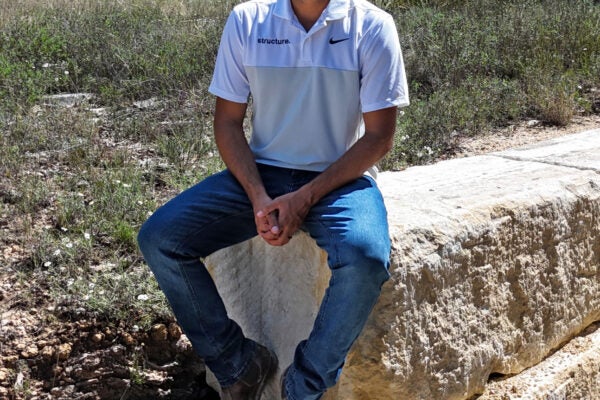Designing for Joy and Confidence
Saba Kamaras, MBA ’18, co-founded Spoonie Threads

Sabas Kamaras knew in business school that she wanted to design clothes for sick children. Her niece was born in 2016 with Walker-Warburg syndrome, a genetic and terminal form of muscular dystrophy that made a feeding tube necessary.
“I saw how difficult it was for my brother and sister-in-law to deal with clothing to access her tube,” says Kamaras, a 2008 graduate of the Parsons School of Design in New York City and an eight-year veteran of the fashion industry. Kamaras wanted to combine her business acumen and fashion sense to help other struggling parents.
Today, she is the president and co-founder of Spoonie Threads, an online adaptive clothing company that makes modified garments and accessories for children who have chronic illnesses or disabilities that require medical devices. Spoonie Threads apparel comes in bold colors and accommodates feeding tubes, ports, ostomies, and insulin pumps, among other devices.
“Beyond basic functionality of the garments, we promote fashion and a sense of fun,” Kamaras says. “We push prints and graphic designs that
might make you laugh or smile.”
Polka-dotted bodysuits with slits in the midriff allow easy access to catheters and feeding tubes, while two-tone shoulder-snap tees give way to central lines and chemo ports. Pink tracheostomy pads protect skin from irritation and absorb leakage around surgical sites. Camouflage ostomy-bag covers easily hide stains. Indigo armbands secure IVs.
Kamaras and Spoonie Threads co-founder Julie Sanchez, a pediatric surgeon, rebranded the Austin business in January 2021 as an offshoot of Sanchez’s former company, Abilitee Adaptive Wear. By targeting kids younger than 18, Spoonie Threads captures an often-overlooked market.
The company’s name comes from a popular analogy used in the chronic illness community to help healthy people understand what it’s like to live with limitations. A handful of spoons represents the amount of energy a person has in a single day. Tasks such as showering, dressing, and eating cost a spoon. A chronically ill individual may run out of spoons before lunchtime, while a healthy person may have spoons leftover at bedtime.
“Spoonie is a unifying term among the chronically ill,” Kamaras says. “It identifies one ‘spoonie’ to another and encapsulates experiences.”
Story by Gretchen M. Sanders
This article appeared in the spring 2022 issue of McCombs magazine. Click on the link to see the full issue.
About this Post
Share:


